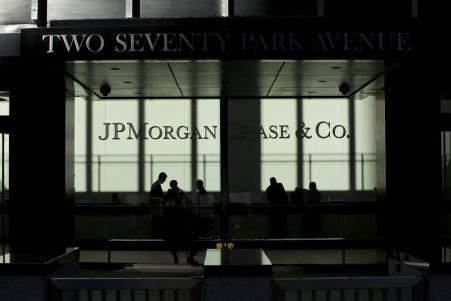By Owen Davis -

In the aftermath of the massive cyberattack that struck JPMorgan Chase & Co (NYSE:JPM). last year, the bank is now struggling with a different sort of breach: Employees are oversharing on LinkedIn. As first reported by eFinancialCareers, JPMorgan Chief Information Officer Dana Deasy recently issued a directive limiting how employees use their LinkedIn profiles. Sources at the bank have confirmed the policy with International Business Times.
This latest development plays into the escalating recruitment wars between major Wall Street firms, and highlights the increasing role social media plays in the corporate food chain – as well as questions of employee freedom in the digital age.
The policy will have implications particularly in the information security field, among the fastest-growing on Wall Street, as well as the most volatile. Unrelenting cybersecurity attacks – like that one that compromised the privacy of more than eighty million JPMorgan clients – have forced banks to bolster their IT units in a hurry. “There’s a lot more jobs and that’s going to create attrition,” says William Wilcox, vice president of the specialty recruiting firm Barclay Simpson. “More jobs being created is going to create higher salaries – and people jumping ship,” Wilcox says.
That makes LinkedIn a potent weapon, if a double-edged one, for HR managers. “For the recruitment industry in general I’d say it’s the primary tool,” says Wilcox. This is true within firms as well as between them. A recruiter at Goldman Sachs (NYSE:GS) can use LinkedIn to scope out talent at JPMorgan, and vice versa.
JPMorgan’s new policy could be aimed at several objectives. According to sources, Deasy isn’t looking to block any and all use of LinkedIn, a network that thousands of its employees use. He is asking only that employees limit their profiles to general, vague descriptions of their job titles. The memo also instructed employees not to give or receive endorsements, which colleagues use to recognize each other for particular skills.
The policy undoubtedly has consequences in the high-stakes world of recruitment. But it could also be intended to keep proprietary information safe in a dog-eat-dog market space where even the slightest information as to a firm's business strategy can give competitors an edge.
JPMorgan declined to comment on matters of recruitment and cybersecurity.
Regardless of intent, the rules may make it harder for headhunters to pinpoint prospective talent. “I have a job where I’m looking at several keywords on LinkedIn,” says Peter Laughter, chief executive officer at the recruiting firm Wall Street Services. Trimming the details from LinkedIn profiles, he says, “decreases the likelihood of me finding them.”
This all raises the question of how much a company can legally curtail its employees’ social media use. A number of Wall Street banks notoriously block social media sites like Facebook and Twitter in the office, but this policy doesn't extend beyond the workday. Though the National Labor Relations Board protects employees who use social media to lodge complaints against employers on a collective level, the law is fuzzier for individual actions like updating a LinkedIn profile.
But whether the policy is legal is a different question from whether it’s wise. “As far as recruiters’ ability to find people, these restrictions will not limit me,” says Laughter, who calls the new policy a “fool’s errand.” Considering the potential headaches around compliance, it’s unclear how far JPMorgan will go to enforce its new policy.
“Any employer has to recognize that their employees work for their own best interests, always,” says Laughter. “The way to keep employees is not to limit their ability to find a new job, but to make the situation they’re in their ideal job.”
